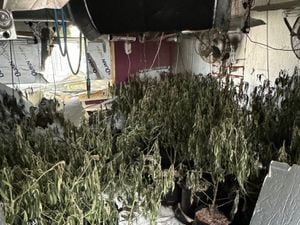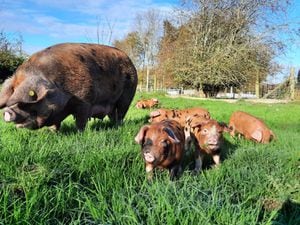Brexit: Family farms warning for future after referendum
The future challenges faced by family farms must be addressed in any post Brexit agricultural policy, a farming campaigner has warned.

Chairman of Farmers for Action (FFA) David Handley said a new British agricultural policy needs to be developed which directly focuses on the needs of farmers.
It comes after FFA and the Tenant Farmers Association (TFA) joined together to highlight the importance of ensuring a vibrant future for family farms across England and Wales.
Both FFA and TFA have been engaging in discussions with Government ministers and civil servants to help shape the post Brexit policy environment and have set out some of the key elements of what will be required once the UK has left the European Union.
Mr Handley and the national chairman of the Tenant Farmers Association, Stephen Wyrill, met at the Welsh Winter Fair to air their views.
Mr Handley said: "Our hard-working family farmers are the backbone of the British countryside. Not only do they produce great food but they manage the landscape, look after biodiversity, provide employment and feed directly into the rural economy.
"Britain would not be Britain without family farms and yet they face a unique set of challenges which must be addressed in any post Brexit agricultural policy.
"Returns to the sector are under pressure, processors and retailers have an unfair advantage in the supply chain, competition from imported products produced at lower standards is a major threat and new entrants face barriers to entry whilst older farmers often lack the ability to move into retirement.
"Once we are no longer part of the Common Agricultural Policy we will need to develop a new British agricultural policy which can focus on these needs directly."
Mr Wyrill said trade is going to be a key area of focus which they must get right.
He said: "It is vital that we build a new consensus for a post Brexit food, farming and environmental policy involving the farming community, environmental groups, consumers and the health agenda whilst understanding our place within the world on trade, aid and development.
"The UK Government must seek to reach some form of interim arrangement with the European Union which allows reciprocal tariff-free trade between the UK and the EU whilst a bespoke trade deal is drawn up between us.
"We have a lot to lose from an inability to trade freely with Europe as does the European Union. There is a clear, mutual self interest in securing an interim deal.
"The UK has already set out its plan to import all standing EU legislation through the Great Repeal Act but we must also give the EU the confidence that we will both studiously govern and adequately resource that legal framework to ensure a smooth working relationship between the UK and the remaining countries of the EU.
"There is no clear advantage to either the UK or the EU in having a 'cliff edge' to our ongoing trade relationship."





